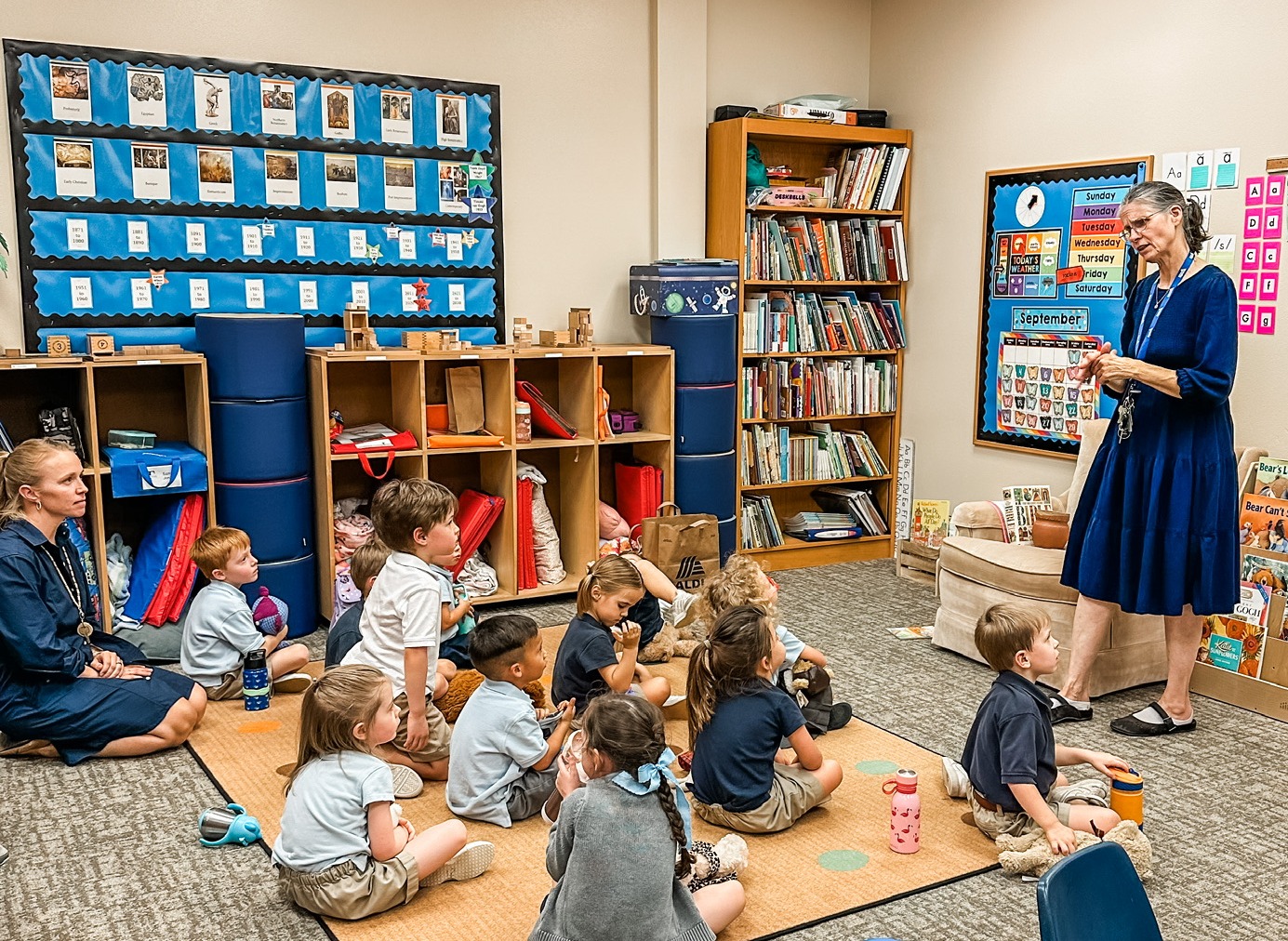I often mention a particular Proverb I think Christian people have begun to neglect. It is Proverbs 29:15, and it goes like this, “The rod and rebuke give wisdom, but a child left to himself brings shame to his mother.” As Christians, we have something the rest of the world does not have in the same way: the Holy Spirit. Part of the work of the Spirit in our lives is to illuminate God’s word for us so that we have belief and understanding that is not available to those who do not have the same indwelling Holy Spirit. So when Christians read in the Bible, “The rod and rebuke give wisdom, but a child left to himself brings shame to his mother,” we can know that it is true.
Trinitas

Recent Posts
How to Avoid a Culture of Disrespect (and Other Shameful Maladies)
Topics: Blog Posts, Parenting, Christian Living
As the tryptophan subsides, can we take a moment to reflect on what is perhaps the greatest of purely American holidays? Thanksgiving is a holiday born of good intention in that it is noble to set aside a whole day to give thanks to God for His provision for us. As Christians, we would do well to remember that we should be thankful every day and should live lives of thanksgiving before God, for every breath we take comes to us as a providence of our good and loving God.
Topics: Blog Posts, School Life, Community Service
When asked which is the “great commandment?” Jesus tells those gathered to “Love the Lord your God with all your heart, with all your soul, and with all your mind.” Then he says the second, which is like it, is to “love your neighbor as yourself.” Astonishing the hearers, Jesus confirms that all the law and the prophets can be summed up in those two commandments (Matt 22:36-40).
Topics: Blog Posts, School Life, Community Service, Christian Living, Parent Involvement
Last week, we shared ten practical tips for achieving enduring success and experiencing the wonderful fruit of classical Christian education at Trinitas, This week, we have ten MORE practical tips we've assembled from our teachers which we hope will benefit your family.
Topics: Blog Posts, School Life, Parenting, Classical Education, Scripture, Christian Education, True Education, Parent Involvement, Reading, Homework, Truth, Goodness, and Beauty, Virtue
The best things in life are often also the hardest things in life, and classical Christian education is no exception to this truism. To help Trinitas parents and students achieve enduring success at Trinitas and experience the wonderful fruit of classical Christian education, we've assembled these ten practical tips for success at Trinitas taken directly from our teachers. Simple, practical, but sometimes a bit pointed, we hope these steps are received in the spirit they are offered and are helpful to you.
Topics: Blog Posts, School Life, Parenting, Classical Education, Scripture, Christian Education, Christian Living, Parent Involvement, Homework, Truth, Goodness, and Beauty, Virtue
Classical education is built upon the Trivium - a three-stage process spanning the entirety of K-12 education with the purpose of nurturing and forming biblically-minded and well-educated students utilizing the great books of the Western world as a curriculum. The first stage of the classical progression - the grammar stage - begins in kindergarten and terminates roughly in 6th grade. Students in this stage are especially apt to memory and are encouraged to commit many facts and premises of literature, history, grammar, poetry, arithmetic, science, and the Bible to memory. The logic stage roughly spans grades 7-9 and (as students at this age seem by nature particularly apt to argument) has an emphasis upon linking the facts so committed in the grammar stage to practical utility through the use of formal argument. Finally, the poetic stage, roughly spanning the balance of high school, is a time in which most students feel a natural yearning for self-invention and self-expression, and are encouraged to draft and defend properly factual (grammar level) and properly reasoned (logic level) arguments in aesthetically appealing forms.
Topics: Blog Posts, School Life, Classical Education
God has created the world to work in a very ordered way. He is a God of order. He brought order out of nothing—out of chaos if you prefer—to establish a peaceful habitation for humankind. Adam’s job was to maintain God’s order in the garden. When he failed at that, he was cast out of the garden, and the job got a lot harder; nonetheless, as his descendants we inherited the job. God’s people are to maintain order, a God-like order, of God’s creation. It is a hard job. Just look around at the mess we must bring to order. But we were made for it.
Topics: Blog Posts, Parenting, Christian Education, Parent Involvement
When children and God come up in the same conversation, few Bible verses get quoted more frequently than Proverbs 22:6, which reads, “Train up a child in the way he should go, and when he is old he will not depart from it.” Interpretations for this nugget of godly wisdom vary. If one considers the verse alongside the command to parents in Deuteronomy 6:4-9 to diligently teach the ways of God to children, and alongside the command to children in Exodus 20:12 (and repeated in Ephesians 6:1-3) to honor and obey parents, then Proverbs 22:6 becomes clearer. We can see that it fits into a larger context for the way God would have us approach child rearing: we are to intentionally, purposefully shape our children’s thoughts and actions toward God.
Topics: Blog Posts, Parenting, Christian Education, Virtue


.png)







